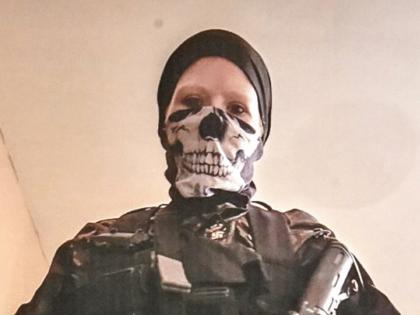Prosecutors will say in secret whether they used controversial spying tool against neo-Nazi accused in Baltimore power grid plot
Published in News & Features
Federal prosecutors said they are willing to disclose whether they used a controversial surveillance program to foil a Florida neo-Nazi leader’s alleged plot to attack Baltimore’s power grid last year, but will only do so in secret, during a classified meeting with the judge handling the case.
Government lawyers refused Thursday to disclose publicly whether they used Section 702 of the Foreign Intelligence Surveillance Act to build the case against the accused plotter, Brandon C. Russell, but agreed to a private meeting with Senior U.S. District Judge James K. Bredar where they will provide more information.
Russell’s defense team remains skeptical. After Thursday’s hearing, an attorney with the American Civil Liberties Union who recently joined the case said the government has a history of using a narrow interpretation of the law to avoid disclosing uses of FISA in prosecutions.
Russell, 28, is accused of plotting with a Catonsville woman, Sarah Beth Clendaniel, to destroy multiple electrical substations in the Baltimore region. The pair allegedly hoped to cause a “cascading failure” of the power grid by targeting energy facilities in Norrisville, Perry Hall, Reisterstown and other areas around Baltimore.
Clendaniel, 36, pleaded guilty in May in exchange for a recommended sentence of 18 years in prison.
Russell’s case has become increasingly shrouded in secrecy. Bredar ruled Thursday that three undercover witnesses will be able to testify at Russell’s trial using “light disguise,” such as altered facial hair or hairstyles, and will be able to use pseudonyms to protect their identities.
The government calls Russell a “racially and ethnically motivated violent extremist.” He is accused of offering instructions to Clendaniel and an undercover FBI informant online and tasking the pair with carrying out the energy station attacks, according to the indictment.
Russell communicated over an encrypted messaging app in chat groups known as the “Terrorgram Collective,” an ideological hub for people who share white-supremacist and “accelerationist” views that call for the intensification of racial conflict and societal collapse, according to the government’s court filings.
Assistant U.S. Attorney Kathleen Gavin said in court that the undercover witnesses against Russell would be at risk of being “doxxed,” or having their personal information exposed online, if they testified under their true names.
Russell’s attorney, Ian J. Goldstein, responded that the witnesses are not “good Samaritans,” but paid informants.
...continued
©2024 Baltimore Sun. Visit baltimoresun.com. Distributed by Tribune Content Agency, LLC.







Comments